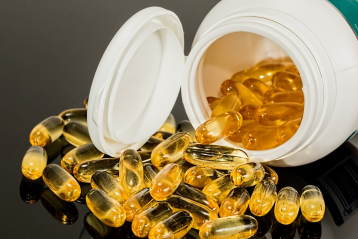More than half of Americans take one or more supplements now a $14 billion worldwide business.
“Your health is your most precious asset.”
Jesse Slome, director of the American Association of Critical Illness Insurance
Dietary supplements health news, June 25, 2020. An excellent report examines if taking a nutritional supplement containing vitamins or minerals is worthwhile. The CNN report estimates that more than half of Americans take one or more supplements. Some take them daily while others are periodic users. According to one estimate the dietary supplement market exceeded $14 billion in 2018.
Start with a healthy diet. “Eating a healthy diet is going to do far more for you than any supplement you can take,” said Martha H. Stipanuk, professor of nutrition emeritus in the division of nutritional sciences at Cornell University. The experts suggest that adding supplements only makes sense for some of us. They identify beneficiaries including the elderly, pregnant women and individuals who have difficulty absorbing nutrients through regular eating.
Avoid too many or too much. High doses of some vitamins and minerals can build up to toxic levels and have adverse side effects. The experts quoted in the CNN report denoted vitamin A, vitamin D, niacin, folic acid, calcium and iron. Their advice; don’t take supplements without the guidance of a registered dietitian nutritionist or medical professional that understands the pathways and interactions of a particular nutrient. As an example, taking too much zinc can interfere with iron or calcium absorption. That can potentially cause deficiencies of these minerals.
Where supplements make sense
Taking supplements can come in handy. The article bases their information on guidelines from national health organizations. They suggest the following can benefit:
- Vegans are at risk of vitamin B12 deficiency.
- Pregnant women need adequate amounts of folic acid, iron, and other vitamins.
- Breastfed infants since human milk is a poor source of vitamin D.
- Postmenopausal women or those at risk for osteoporosis.
- Older adults who may benefit from vitamin D.
- Women between ages 50 and 70 who could benefit from calcium and vitamin D.
Supplement savvy; and good heart health
The article shares some advice for those seeking to prevent the development of heart disease. Also it cautions the individuals understand some medications can interact with nutrients and affect their absorption. Finally, it shares some excellent tips. For example, avoid mega doses. Look for 100% of the Daily Value for vitamins and minerals one of the experts points out. “1,000% [of the daily value] is a red flag.”
Dietary supplements health news: To access the full CNN report, click here.
“Your health is your most precious asset,” says Jesse Slome, director of the American Association for Critical Illness insurance. “We offer ongoing Healthy Helps as a public service to help adults live long and healthy lives.” The organization advocates for the importance of planning for the potential financial consequences associated with major illnesses.
“Too few people are prepared for the consequences of a cancer diagnosis,” Slome points out. He recommends people understand the real risks by looking at cancer, heart attack and stroke statistics for American adults. Then, learn what critical illness insurance covers,” he advises.

Photo credit: Image by Image by Steve Buissinne from Pixabay
Want More Healthy Helps? Follow Us on Facebook.


